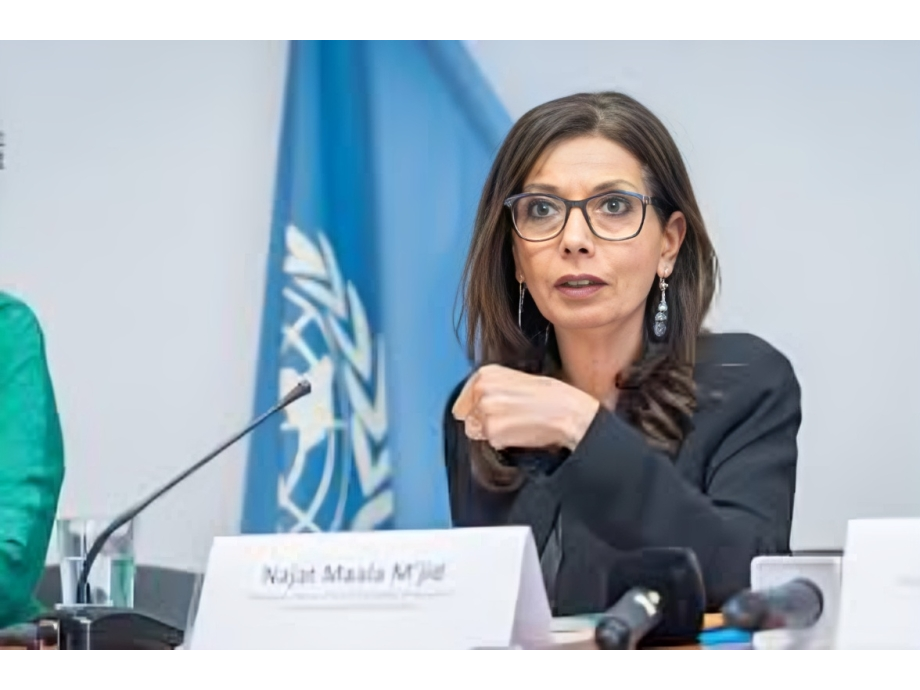Health
WTBD: 400,000 Nigerians Enrolled for TB Treatment in 2024

By Laide Akinboade, Abuja
The Federal Government, FG, at the weekend revealed that over 400,000 Nigerians enrolled for Tuberculosis, TB, treatment in 2024.Dr. Urhioke Ochuko, Deputy Director of the National Tuberculosis and Leprosy Control Program, Department of Public Health, Federal Ministry of Health and Social Welfare, revealed this at at a road walk in Abuja, to commemorate the 2025 World Tuberculosis Day, WTBD.
The Director, also urged all stakeholders to intensify efforts in tackling the preventable and curable disease. He emphasized the urgency and how imperative it is for stakeholders for renewed action in the country.The theme for this year’s commemoration, “Yes, We Can Hang TB. Commit, Invest, And Deliver,” with the slogan “We Fit Do Am,” underscores the need for collaboration across all sectors to finally eliminate TB in Nigeria.Dr. Ochuko said, “As a country, we must do all that is necessary to ensure that we end this deadly disease. Even though TB is treatable and curable, we still have work to do,”.Despite Nigeria’s progress in TB control, the disease remains a leading cause of death. According to the World Health Organization (WHO), tuberculosis still claims at least one Nigerian life every five minutes, despite being entirely curable. The road walk served as a means of sensitizing Nigerians, particularly in marketplaces and other public areas, about the symptoms of TB and the importance of seeking medical care early.He said, “The whole essence of this exercise is to get people to know that TB is still with us. Anyone who has been coughing for two weeks or more, has a prolonged fever, or is losing weight unintentionally should visit the nearest hospital for a test. If diagnosed, treatment is free,”.Nigeria has made strides in TB detection and treatment. Dr. Ochuko revealed that over 400,000 Nigerians were enrolled in TB treatment in 2024, a significant improvement in case notification rates. However, with an estimated 500,000 new cases annually, the country is still working to bridge the gap in identifying and treating every infected person.To further accelerate TB control efforts, the government has recently deployed over 400 portable digital X-ray machines across both rural and urban communities to enhance screening and early detection.“These machines will be deployed nationwide, especially in underserved communities, ensuring that no Nigerian is left behind in the fight against TB,” Dr. Ochuko explained.The 2025 World Tuberculosis Day commemoration serves as a wake-up call for increased investment in TB control. The government and stakeholders continue to push for universal health coverage, ensuring that every Nigerian is screened, diagnosed, and treated at no cost.Dr. Ochuko remains optimistic that with sustained commitment and investment, Nigeria can achieve its TB eradication goals.“We have made good progress, but there’s still work to do. If we remain committed, invest in the right resources, and deliver on our strategies, we will defeat tuberculosis once and for all,” he concluded.With more awareness, community engagement, and enhanced healthcare interventions, Nigeria is on the path to making tuberculosis a disease of the past.General News
NAFDAC Announces WHO Prequalification of Locally Made Syringe

The National Agency for Food and Drug Administration and Control (NAFDAC), says a 0.5ml Auto Disable Syringe produced by Afrimedical Manufacturing and Supplies Ltd, has achieved World Health Organisation (WHO) prequalification.
NAFDAC Director-General, Prof. Mojisola Adeyeye, disclosed this at a news conference on Wednesday in Lagos, describing it as a significant milestone for Nigeria and the West and Central Africa region.
According to Adeyeye, Afrimedical, located in Ogun, is the first indigenous syringe manufacturer in Nigeria—and the entire West and Central Africa—to receive WHO prequalification for its syringes.
She noted that the achievement followed a rigorous process, substantial investment, and technical support and guidance provided by NAFDAC.
“This milestone aligns with the agenda of the President Bola Tinubu-led administration to promote local production of medical products,” she said.
“It is with great joy that I announce that, after a rigorous process, the WHO has prequalified Afrimedical’s 0.5ml AD Syringes.
“They are now eligible for national and international procurement by relevant agencies and organisations.”
Adeyeye added that Afrimedical was now the first manufacturer in West Africa to be recognised by WHO as operating at an acceptable level of compliance with Good Manufacturing Practice (GMP) requirements.
She emphasised that NAFDAC, in its drive to become a world-class regulator, embraced global best practices in all aspects of medical product regulation.
In 2023, only three out of seven indigenous syringe manufacturers in Nigeria were functional, collectively operating at less than 20 per cent of their combined installed capacity of 2.5 billion syringes per year, she revealed.
Adeyeye highlighted NAFDAC’s “5+5” policy, introduced in 2019, which restricted the importation of medicines and devices that could be produced locally.
“Products with five-year registration validity that can be manufactured in Nigeria will be granted one final five-year renewal, after which importation will no longer be allowed,” she explained.
Following NAFDAC’s attainment of WHO Maturity Level 3 in 2023, the agency began engaging international procurement bodies, such as UNICEF’s supply division in Copenhagen, to promote patronage of locally manufactured medical products, including syringes.
The Director-General urged other indigenous manufacturers to emulate Afrimedical’s achievement through collaboration and alignment with NAFDAC’s regulatory goals.
Also speaking at the event, Afrimedical General Manager, Mr Gabi Al-Aridi, described the WHO prequalification as a major milestone for the company, NAFDAC, and Nigeria as a whole.
Al-Aridi praised the federal government’s efforts to support local production and stated that “Afrimedical currently produces about 1.8 billion syringes annually.”
He reaffirmed the company’s commitment to high-quality, locally made medical products and encouraged Nigerians to embrace them to help boost the nation’s economy.
The National Agency for Food and Drug Administration and Control (NAFDAC), says a medical device, 0.5ml Auto Disable Syringe produced by Afrimedical Manufacturing and Supplies Ltd, has achieved WHO Prequalification.
Prof. Mojisola Adeyeye, the Director-General of NAFDAC disclosed this at a news conference in Lagos on Wednesday.
Adeyeye said the company located in Ogun State is the first st local manufacturer of syringes in Nigeria and also in West and Central Africa region to achieve the laudable feat.
She said the company was able to achieve the feat after a thorough arduous process, heavy investment and technical support and guardians by NAFDAC.
The D-G noted that the feat also align with the agenda of the President Bola Tinubu led administration to support local production of medical products in the country.
“it is with great joy and delight that I have the privilege of informing our stakeholders and the public that, after a rigorous process and a lot of investment by Afrimedical, the WHO has prequalified 0.5ml AD Syringes.
“The syringes have now been added to the WHO list of prequalified syringes and are therefore eligible for national and international procurement by relevant agencies and organisations.
“This is undoubtedly the outcome of meaningful collaboration between the company and NAFDAC, and the systematic implementation of NAFDAC policies over the years.
“Afrimedical has become the first manufacturer of syringes to be recognised by the WHO as operating at an acceptable level of compliance with GMP requirements in West Africa,” he said.
Adeyeye said in line with NAFDAC vision to be a world class regulator that ensures only quality and safe regulated products are used in the country, the agency embraced global best practices in all its regulatory functions of medical products.
She added that only three out of the seven indigenous syringe manufacturer were functional in the country in 2023 and they have a combine installed capacity of over 2.5 billion syringes per annum, while functioning below 20 per cent capacity.
She said:”The Agency started laying a foundational policy in 2019 for local manufacturing of medicines such as 5+5 regulatory.
“This directive which ensures that products that were previously imported with five-year registration validity and that can be manufactured in Nigeria are given the last renewal of five years and thereafter prevented from being imported.
“In 2023, after the attainment of WHO Maturity Level 3, NAFDAC engaged UNICEF supply chain in Copenhagen and at a workshop in Lagos to patronize locally manufactured medical products including syringes.
The Director-General, however, encourage other well-meaning local manufacturers of medical products to emulate this feat through harmonization of collective aspiration and synergy of effort with NAFDAC’s relevant directorates.
Speaking also, the General Manager of Afrimedical Manufacturing and Supplies Limited, Mr. Gabi Al-Aridi described the feat as a major milestone for the company, NAFDAC and Nigeria at large.
Al-Aridi, who commended the federal government for promoting local production of pharmaceutical products said the company producing about 1.8 billion syringes per annum.
He reiterated the company dedication to providing high-quality, locally manufactured syringes, while urging Nigerians to embraced locally made syringes to boost the nation’s economy.(NAN)
Health
UN lauds FCT’s Multisector Approach to Ending SGBV

The United Nations has commended the Federal Capital Territory Administration (FCTA) for its multisectoral approach to ending all forms of Sexual and Gender-Based Violence (SGBV).
Dr Najat M’jid, Special Representative of the UN Secretary-General on Violence against Children, gave the commendation in Abuja on Tuesday, when she visited the Awyetu Sexual Assault Referral Centre (SARC).
The SARC, located at Bwari General Hospital was established in 2020 by the British Council on behalf of the European Union under its Rule of Law and Anticorruption (ROLAC) Programme.
The centre was established to provide comprehensive medical, psychological, and legal support to survivors of sexual violence, with a special focus on children and vulnerable populations.
M’jid expressed excitement with the synergy among the different sectors working together to eliminate all forms of SGBV in the FCT.
“I am happy today because of what I have seen – many ministries are onboard supporting the fight against SGBV.
“This is because the problem is not only the problem of FCT Women Affairs; the issues are also in health, in Justice, and in communities,” she said.
She said that she was in the country to understand what was being done to address SGBV, “and how together, we can move forward”.
She added that Nigeria was one of the paths finding countries on ending violence against children.
She also said that the country was very involved and very committed to end all forms of violence against children and had made pledges.
“Visit to Nigeria is to see how we can move ahead, how we can support and how we can achieve set targets from the many commitments the country has made.
“We want to see how we can translate those commitments into concrete services that will prevent and address all forms of violence against children,” she said.
The special representative, however, stressed the need to address the drivers of SGBV, detect and respond to reported cases and ensure that it was not happening again.
She further said: “It is really important to make sure that the victims can be heard, be considered and be seen as victims and make the perpetrators accountable.
“There is also the need to stop justifying violence against children and women through poverty and through social norms”.
Earlier, the Mandate Secretary, FCT Women Affairs Secretariat, Mrs Adebayo Benjamins-Laniyi, pointed out that a multisectoral problem required a multisectoral approach to tackle it.
Benjamins-Laniyi said that a stronger synergy was required among critical stakeholders to deliver critical intervention from the local to the state level, in line with global best practices.
She described M’jid visit as a “positive disruption” that sparked a desire to strengthen partnership and collaboration among the different stakeholders to do more for women and children in the FCT.
The mandate secretary said that the FCT Administration had rolled out plans to reposition the SARC centre to provide quality integrated services to SGBV survivors.
Also, the Mandate Secretary, Health Services and Environment Secretariat, Dr Adedolapo Fasawe, said that M’jid’s visit reaffirmed the global resolve to protect children from violence.
Fasawe, who was represented by the Permanent Secretary in the secretariat, Dr Baba-Gana Adam, added that the visit was very encouraging.
She added that the visit also reinforced the role of sexual assault centre in ensuring access to care, justice, and dignity for survivors of sexual and gender-based violence.
She disclosed that the hospital had continued to sustain the provision of services at the centre when the ROLAC support ended, but amidst numerous challenges.
The mandate secretary, identified some of the challenges as funding for essential drugs and kits, staff training and incentives, inconsistent collaboration with law enforcements, and absence of prevention and community awareness programmes.
Foreign News
WHO: Social Factors Outweigh Genetics In Shaping Global Health

Housing, income, education, and other social conditions have a greater impact on health than genetics or the quality of health-care systems, according to a new World Health Organisation (WHO) study.
The research, set to be presented and live-streamed from Geneva on Tuesday, found that social determinants such as poverty, discrimination, and lack of access to resources account for more than 50 per cent of health outcomes.
These “social determinants of health equity” include the environments in which people are born, live, work, and age, as well as their access to power, money, and opportunity.
“These factors create unjust and avoidable health gaps,” said WHO Director-General Dr Tedros Adhanom Ghebreyesus.
“Billions of people face higher risks of illness and death simply because of the conditions they’re born into or the social groups they belong to.”
Tedros emphasised that much of the global disease and mortality burden was preventable, calling health inequity a result of political and social decisions that global leaders had the power to change





















